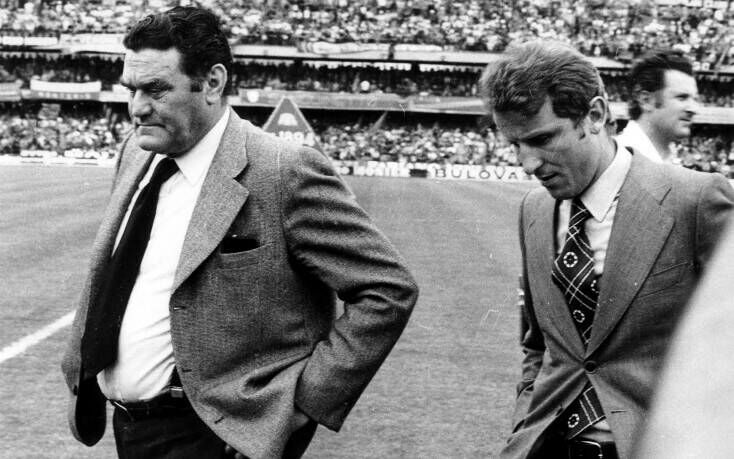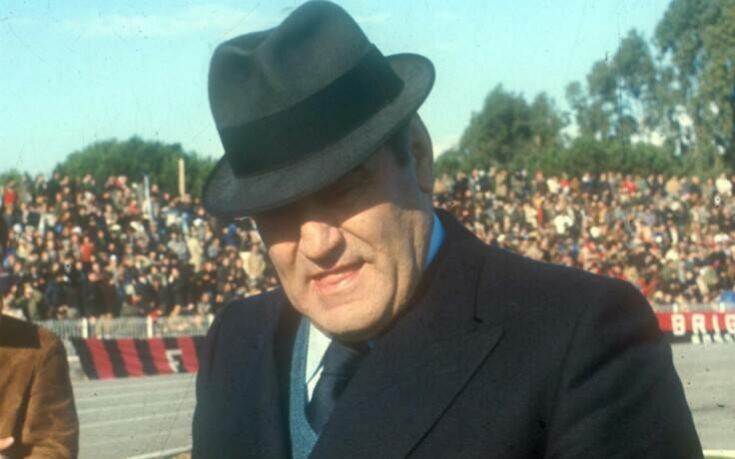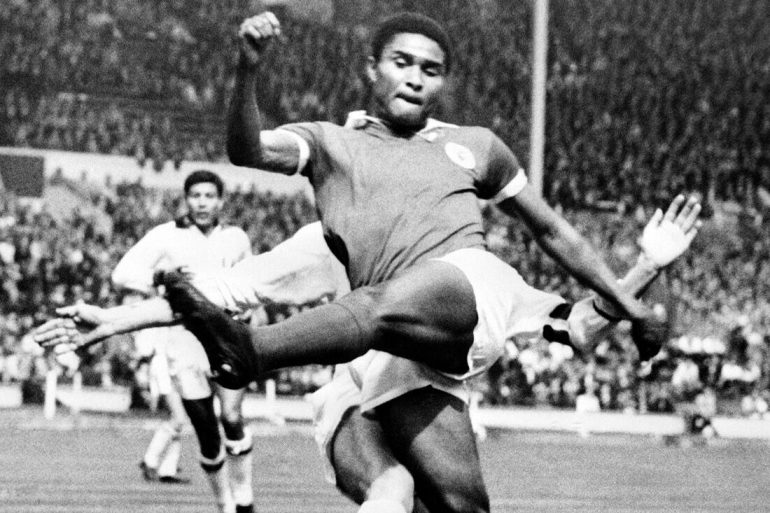He was of the logic "success in every way" and achieved a lot, challenging the tactics that had prevailed to impose his own.
The end of World War II found Italy with a nation that felt defeated, with an economy that was shattered and with a football in which the strongest always won. All this had to change in every way and this logic was liked by a guy from Trieste, who took over the third.
To change football. And he changed it. Always having an asterisk to accompany it though. In life, he was questioned about whether he was really that good. After his death, he did not have the recognition he deserved.
Nereo Rocco was born in 1912, he made a very nice as a good football career as an winger in Trieste, Napoli, Padua and he also wore the jersey of the Italian national team, making his debut in 1934 in a match against Greece. He only played for one half, but it was enough to make him feel even more patriotic. So says the legend, so we mention it.
We do not know, of course, whether it was this love for Italy or the fact that success had to come in any way that made him logically challenge the football tactics of the time, but it does matter that he did.
Those were the years when football was dominated by the 2-3-5 system or 2-3-3-2, the famous WM because of the way the players lined up on the field and came from England. It was the order that had prevailed as the best, as the one that brings guaranteed results and finally as the one that Rocco would change in his own way. That of Catenaccio.
Here, for historical reasons, we must open a parenthesis to note that according to what history has recorded, Austria is also claiming the paternity of this tactic with coach Carl Rapan, but even so, they never managed to do so. impose like the Italians.
We close the parenthesis and return to Nereo Rocco, who would begin his… revolution in 1947 as coach of Trieste. It was his first job as a coach and he immediately left promises for the future, as in his first season he led his team to 2nd place, behind Grande Torino which would later be lost in the Superga tragedy.
How did he do it? With the logic of destruction and not of creation. If WM was the system and philosophy that prevailed, Catenaccio was the answer. This word means "padlock" and it means that everyone understands what followed…

Rocco put another defender behind the two, as a libero, that is, free, based on the thought of the fisherman: "Whatever does not collect the first net, will collect the second". And so, he directly challenged the man-to-man and had in his defense the libero to clear whatever phase left the others.
It was simple as a thought, possibly because so was Nereo Rocco as a person or as a coach. "Nothing was scientific in his method, maybe that was another reason he liked and enchanted. Rocco, moreover, because of his appearance, more than a coach, he looked like the father of a family, who worked hard, brought home the salary and ensured that there would be no tensions and quarrels in his family. "If they showed him the analyzes on the computers today or talked to him about the percentage of possession of the ball, he would have reacted with a simple phrase: 'Shut up idiot!', The Gazzetta dello Sport wrote about him a few years ago.
Why; Because at the heart of his logic for team tactics was the man. Rocco believed that with encouragement everyone can achieve more than they really can, so what he did was not to analyze one tactic after another in his players, but to come to them and become their friend, while maintaining in its own way the necessary distance.
"Nereo Rocco sweated on the bench as much as his players on the pitch, took a shower with them after the match, he was like a teammate, but when he saw someone in a city bar at night, he had a way of reminding himself that he was still the coach. Gianni Brera, the legend of Italian (sports) journalism, had entered.

The two of them, after all, knew each other well, since when Nereo Rocco had achieved miracles in Padua, which he took from Serie B and led it to the 3rd place (best in its history) in Serie A, he signed in Milan in 1961. There he would become a legend, bringing the first Champions Cup to Italy in 1963, against Eusebio's Benfica.
The Portuguese are constantly on the attack, the Italians on the defense. The Portuguese lost, the Italians won. The same would happen a few years later, in 1969, to the Dutch in Ajax with the rising Johan Cruyff.
It was the years, that decade, of the great rivalry of Nereo Rocco with Elenio Herrera, the coach who would perfect the Catenaccio, leading his compatriot Inter to championships and two Champions Cups.
There was recognition between the two, but no sympathy, without this being of particular interest to one or the other. Rocco, after all, continued his analysis in the bars of Milan, as he particularly enjoyed drinking with friends, journalists or not, analyzing the tactics of each or every opponent.
The one who undertook to "lock" each time, having passed on to his team the logic, the way of thinking that he wanted. And beyond that, he was sensible enough to let Jose Altafini or Gianni Rivera take creative initiative first, beautifying his game.
He relied on the logic of success in every way and that is why he succeeded. Even though he has been forgotten over the years, after his death in 1979, by the discussions about the real legends of the Italian coaching or football school in general…
